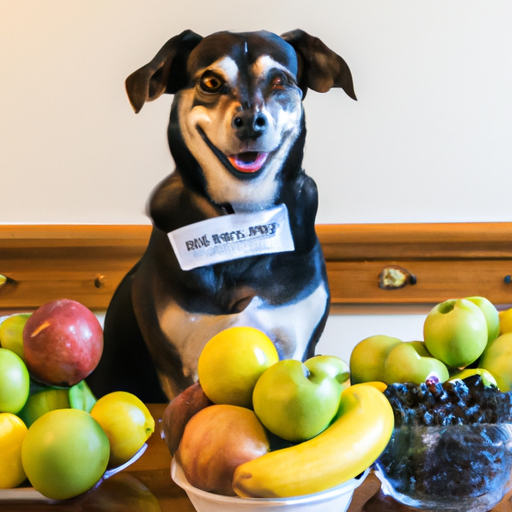As a caregiver to your beloved furry friend, you might often find yourself wondering, “What fruits are safe for my dog to eat?” With an abundance of information available, it can be challenging to navigate and understand what’s best for your pet. This comprehensive guide will help you make the right choices for your dog’s diet, so you can rest assured that you’re providing them with safe and healthy food options.
H2: The Importance of Fruits in a Dog’s Diet
Fruits can be a great addition to your dog’s diet. They are rich in essential nutrients and antioxidants that can help boost your dog’s immune system, improve their digestion, and generally contribute to their overall health. However, it’s essential to remember that not all fruits are safe for dogs to consume.
Some of the benefits of incorporating safe fruits into your dog’s diet include:
- Vitamins and Minerals: Many fruits are rich in vitamins A, C, and E, as well as potassium and fiber.
- Antioxidants: Some fruits contain antioxidants that can help protect your dog’s cells from damage.
- Hydration: Fruits have a high water content, which can help keep your dog hydrated, especially during the summer months.
H2: Safe Fruits for Dogs
Here is a list of fruits that are generally safe for dogs to consume:
- Apples: Apples are a great source of vitamins A and C, as well as fiber. Make sure to remove the seeds and core before feeding them to your dog.
- Bananas: Bananas are rich in potassium and vitamins. They are high in sugar, so they should be given in moderation.
- Blueberries: Blueberries are antioxidant powerhouses, beneficial for your dog’s health.
- Cranberries: Both cranberries and dried cranberries are safe for dogs to eat, but they should be given in moderation due to their high sugar content.
- Mangoes: Mangoes are a vitamin-packed fruit, beneficial for dogs. However, the pit should be removed as it can be a choking hazard.
H2: Fruits Your Dog Should Avoid
As beneficial as some fruits can be, there are others that should be avoided as they can be harmful to your dog. Here are some of these fruits:
- Grapes and Raisins: These can cause kidney failure in dogs.
- Avocados: Avocados contain persin, a substance that can induce vomiting and diarrhea in dogs.
- Cherries: The pits, stems, and leaves of cherries contain cyanide, which is toxic to dogs.
- Citrus Fruits: While the flesh of citrus fruits is generally safe, the peel, seeds, and leaves can cause irritation and possible central nervous system depression if consumed in large amounts.
H2: How to Introduce New Fruits into Your Dog’s Diet
Introducing new foods into your dog’s diet should be done gradually and with care. Here are some steps you can follow:
- Small Portions: Start with small portions to see how your dog reacts to the new fruit.
- Monitor Their Reaction: Watch for any signs of an allergic reaction, such as itching, swelling, or difficulty breathing.
- Gradual Increase: If there are no adverse reactions, gradually increase the amount over time.
FAQ
Q: Can dogs eat peaches?
A: Yes, dogs can eat peaches, but the pit should be removed as it contains cyanide.
Q: How much fruit can my dog eat?
A: Fruit should make up no more than 10% of your dog’s daily caloric intake.
Q: Can dogs eat strawberries?
A: Yes, strawberries are safe for dogs to eat and are a good source of vitamins and fiber.
Q: Are tomatoes safe for dogs to eat?
A: While ripe tomatoes are generally safe for dogs, green tomatoes, stems, and leaves should be avoided.
Q: Can dogs eat pineapple?
A: Yes, pineapple is safe for dogs to eat in moderation and can be a healthy treat.
Remember, while fruits can be a healthy addition to your dog’s diet, they should not replace a balanced, nutritious diet suitable for your pet’s needs. Always consult your veterinarian before introducing new foods into your dog’s diet.



